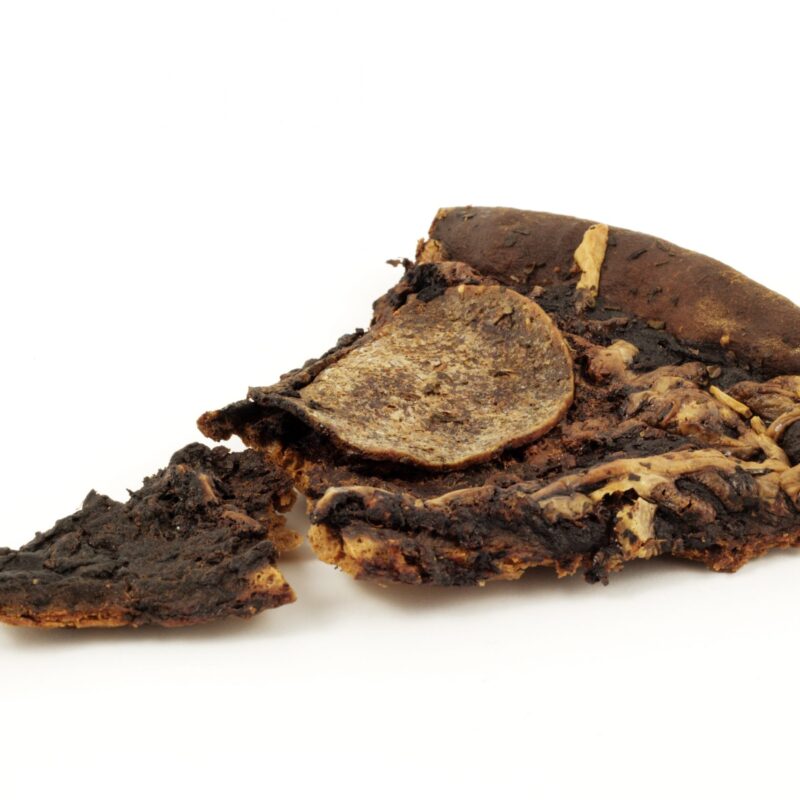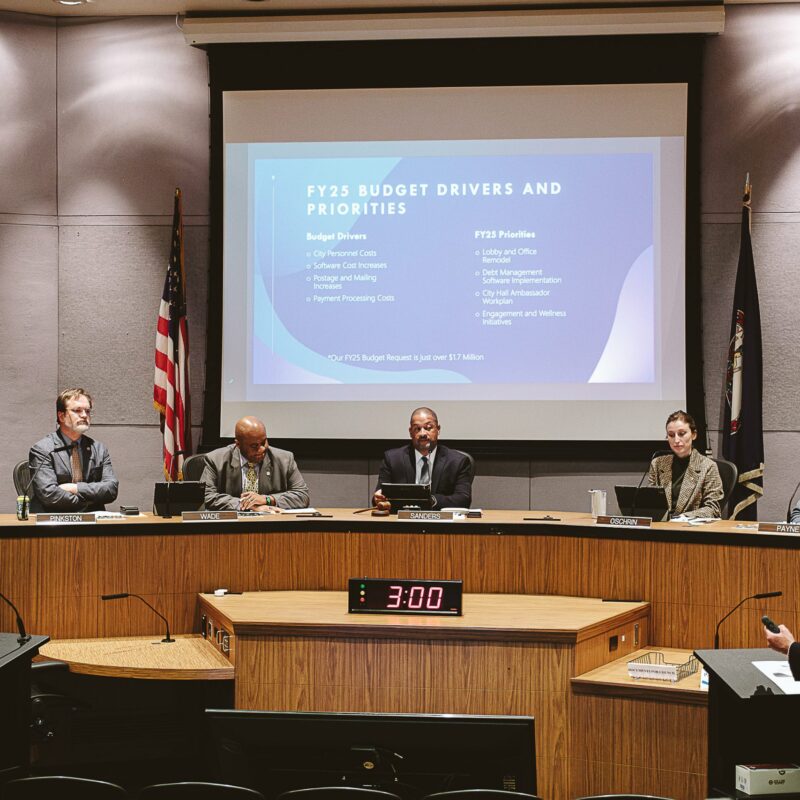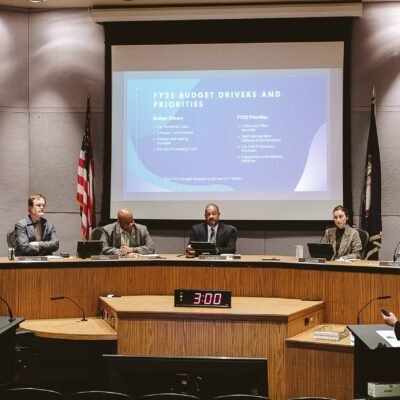Following the violent shooting April 16 at Virginia Tech that left 33 people dead in a campus dormitory and classroom building, university officials everywhere are examining policies that protect students’ safety.
President John T. Casteen III addressed a group of mourners at an April 17 vigil for the Virginia Tech victims: “The University has detailed procedures in place to handle catastrophes of many kinds. We will review all of these procedures.”
 UVA students noticed a rise in police presence on Grounds after Seung-hui Cho murdered 32 people at Virginia Tech. UVA is reviewing campus security and has plans to implement an alert system that includes text messages and high-tech LED screens next fall. |
Patricia Lampkin, vice president of student affairs, also sent a notice to parents that University police were collaborating with staff “as needed.” “Finding ways to improve safety is at the forefront of our minds,” Lampkin wrote. Among those improvements: an “instantaneous notice system” for the fall, to include e-mail, text messaging and PDA alerts as well as strategically placed LED video screens around Grounds.
Students, too, are rethinking safety on campus.
“I was sitting in class earlier this week and I started to think about what possible exits I could take if someone were to come into the classroom with a gun,” says Kate McMillan, a senior. “I realized that there were only a limited number of exits for the number of people in the room. In many ways we are just as vulnerable to an attack as Virginia Tech sadly was.”
Carrington Dudley, a freshman, wrote over e-mail: “I’ve seen a lot more security guards and police around campus, but only the beginning of this week. We still use cards to get into our dorm, but I haven’t noticed that people are much more hesitant to let people in. I guess people feel like if they recognize the person and know that the person is a student…that it doesn’t matter. I just find that strange since the shooter was a student himself.”
Though these facts may seem chilling to parents of campus-dwellers, experts say universities are doing a fine job of securing students.
Sheldon E. Steinbach, a higher education attorney and former vice president of the American Council on Education, says, “I wrote the first white paper on campus security in 1983, urging our schools to increase campus security: sophisticated locks, more lighting, escort services, and dramatic increase in personnel, all of which has happened at enormous expense, by the way. It’s not like schools are negligent.”
Governor Tim Kaine has ordered a review of Tech’s actions surrounding the incident, and schools everywhere are reviewing their policies. But Steinbach says few gaps may be found.
“What we’ve been talking about is really Monday morning quarterbacking, all the wisdom of 20-20 hindsight that doesn’t, in the light of day, replace the fact that the institution as of this moment did everything right.”—with additional reporting by Stephanie Woods
C-VILLE welcomes news tips from readers. Send them to news@c-ville.com.





